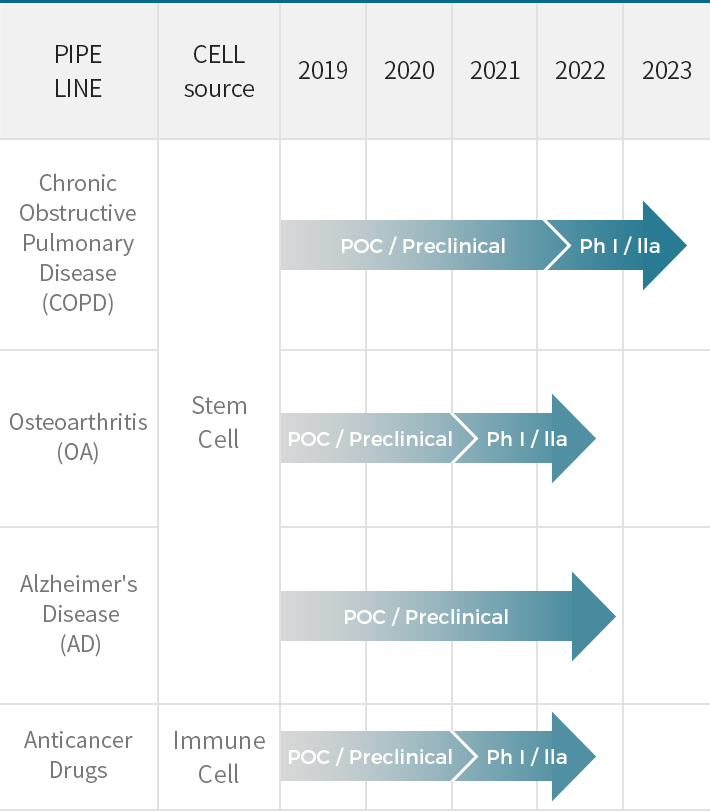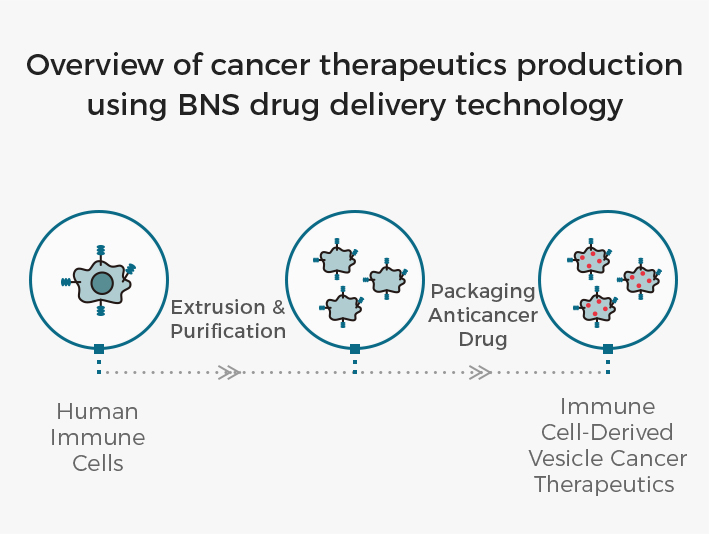R&D
SMART DRUG DELIVERY PLATFORM BASED ON CELL-DERIVED VESICLES
R&D
Anticancer Drug/Personalized Anticancer Drug/Osteoarthritis/COPD/Neurodegenerative Diseases


-
01
BionanosomeⓇ
- BionanosomeⓇ (BNS) is a novel CDV-based anticancer drug delivery system derived from human immune cells.
- BNS contains on the surface cell adhesion molecules that selectively bind to the endothelial cells of tumor vasculature. The specific binding property of BNS allows active tumor targeting with the drugs as well as minimizing phagocytic clearance of vesicles by the reticuloendothelial system.
- The BNS technology was published in the scientific journal ACS Nano in 2013. (Bioinspired exosome-mimetic nanovesicles for targeted delivery of chemotherapeutics to malignant tumors. ACS Nano. 7(9), 7698-7710)


-
02
BNS-Dox
- BNS-Dox: the 3rd generation Doxorubicin Drug
-
1st Generation- Doxorubicin
- Developed in 1960s
- Doxorubicin-HCl
- Generic versions are currently available
- Used to treat various types of cancer
2st Generation- Liposomal Doxorubicin (DOXIL)
- US FDA approved in 1995 (Johnson & Johnson)
- Doxorubicin-HCl in liposome
- Sales in 2013: $600M
3st Generation- BNS-Dox
- Doxorubicin in BionanosomeⓇ
- Cancer-targeting capacity
- Can be used to treat various types of solid cancers,
by itself or in combination with other drugs
-
03
Advantages of
BNS-Dox- Potential to overcome cardiotoxicity of doxorubicin
-
- BNS-Dox is expected to have similar efficacy as doxorubicin only with 1/20 of dose.
- BNS-Dox is being developed in a form to confer minimal toxicity and maximal efficacy.
- Drastically increased efficacy by efficient target-specific delivery
-
- Adhesion molecules on the surface of BNS enable active targeting to cancer tissues by specifically binding to the tumor endothelial cells.
- As it is obtained from human immune cells, the phagocytic removal of drugs by
the reticuloendothelial system can be minimized.
- Wide range of applications including metastatic cancers
-
- Various types of anticancer drugs (synthetic/biological) can be loaded in the vesicles.


